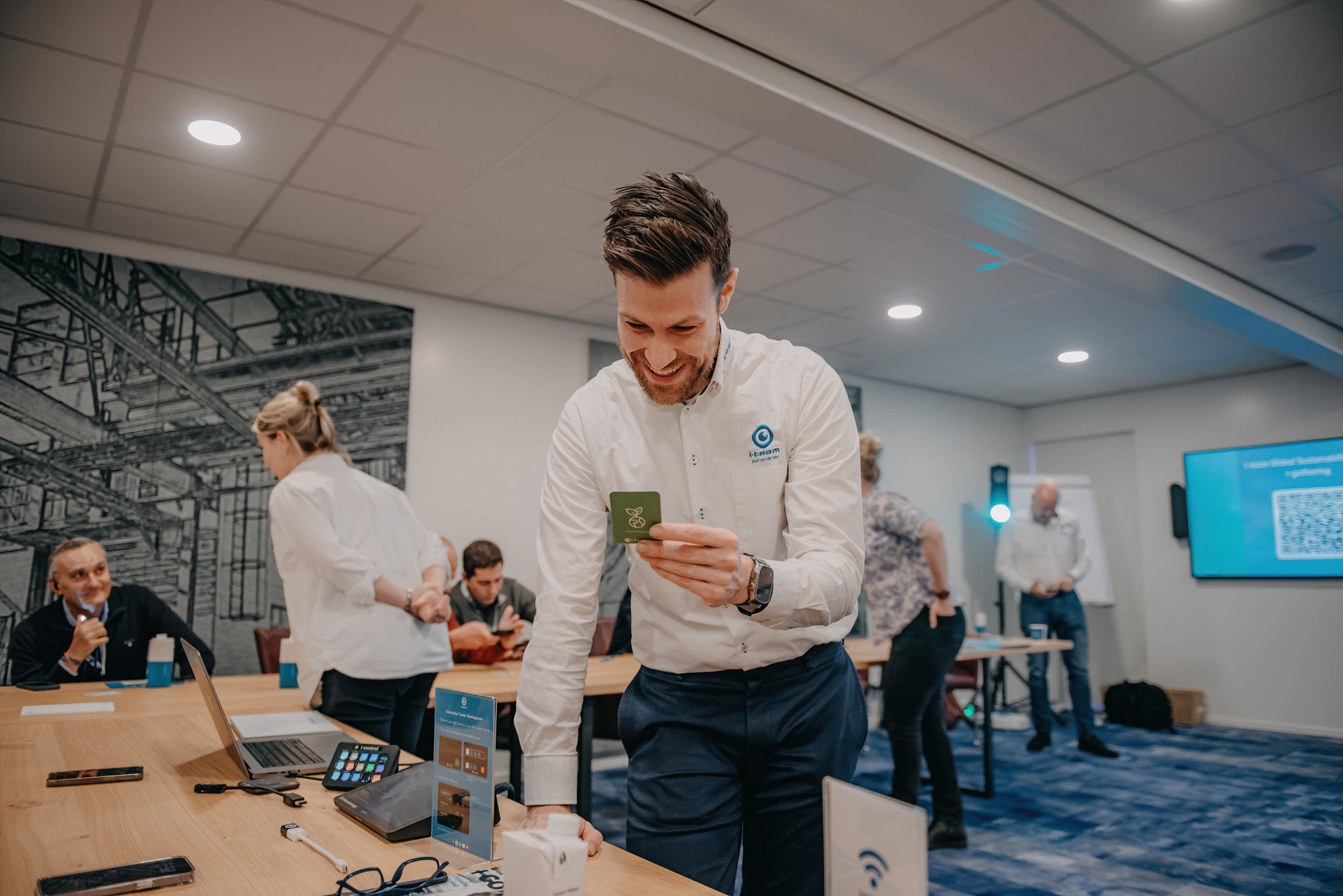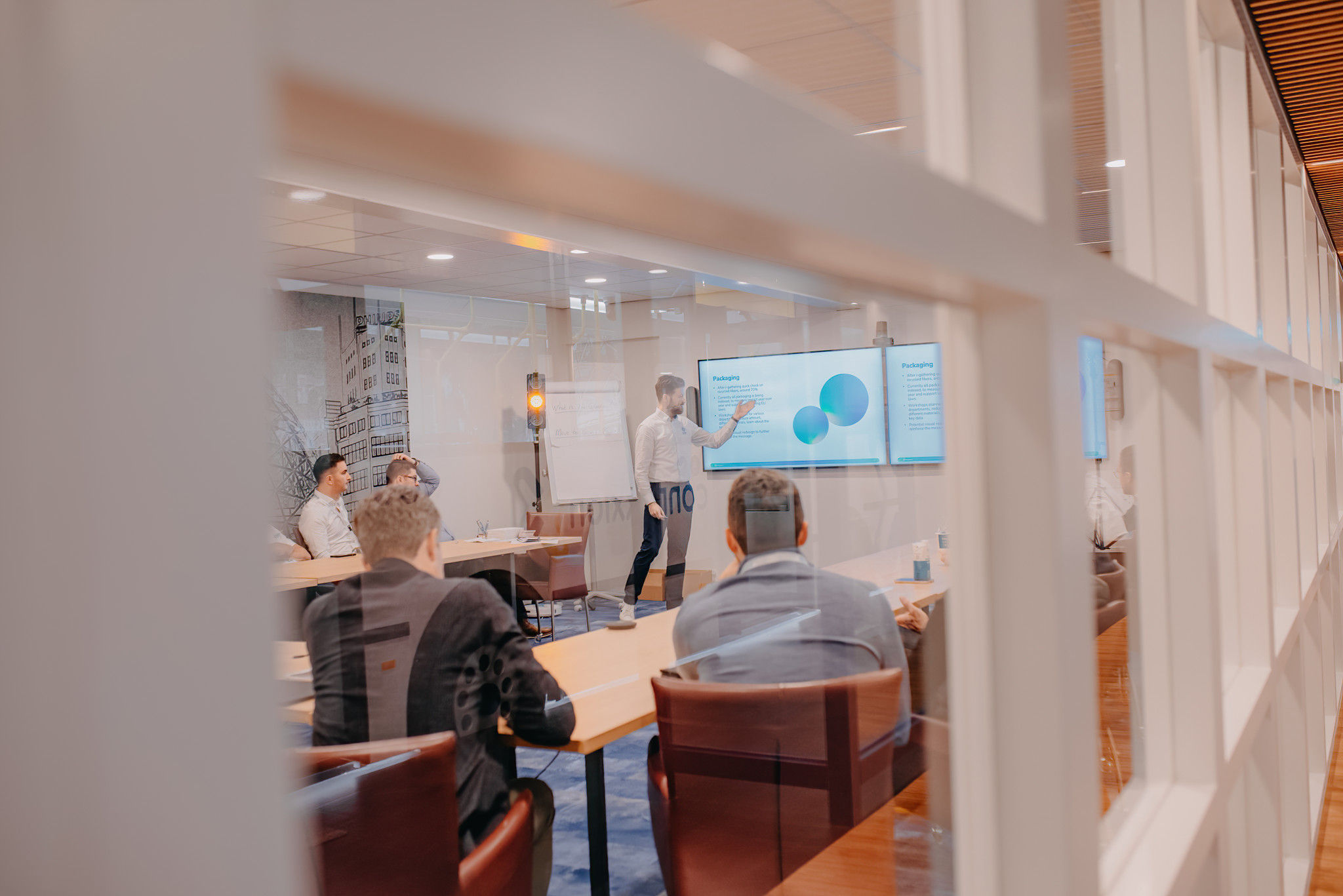Share on Socials
In March 2022, Ron van de Ven stepped into his new role as I-team Global’s ESG (environmental, social, and governance) ambassador. To get a better idea of his role within i-team global’s sustainability journey, and his goals, we asked him a couple of key questions:
I have worked at I-team professional since May 2014, taking on roles within marketing and IT. Last year two key things happened simultaneously: I started looking for the next step in my career and I was introduced to Leen Zevenbergen, the co-founder of B Lab Europe. We got to talking about sustainability and how you can implement ESG policies in an organisation. This is how I became interested in establishing an ESG team at i-team Global and becoming a part of it myself.
This is actually something we are still discovering. There are various definitions and frameworks for ESG and sustainability, and the landscape is constantly evolving. A big part of the job has therefore been to build out the program and initiatives and map the responsibilities. Every single step of the way we are embracing and learning what it really means to deliver on ESG across the entire business line. One of the key assignments this role was established for was to put i-team Global on a strategic sustainability roadmap. This is why we started using the B Impact Assessment (BIA) as part of the B Corporation certification, and why we are working with the United Nations Global Compact (UNGC) and the Sustainable Development Goals (SDGs)
The first year was a year of discovery, establishing a baseline, and taking inventory of where we currently are. We spent a lot of time learning and understanding the scope of ESG, and determining the tasks and responsibilities that fall under this. Once we understood where we were we could establish where to go from here. It takes a lot of time and organisation to gather all of the right information and metrics, run analyses and assessments, and establish benchmarks – and this has been a priority up until now. From here we can start setting concrete goals and investing in those areas.
Even though we were just starting out we already achieved quite some milestones in the first year. We went for the ECOVADIS certification and achieved a silver rating in November 2022. We also joined the UN Global Compact in September, something which helps to structure our initiatives, tracking, and reporting. Additionally, we achieved the BREEAM certification for the Flight Forum – our new logistics and conference centre near Eindhoven airport. This was a huge highlight and demonstrates our organisation’s priority of making everything we do as sustainable as possible.
Ron van de Ven, ESG Ambassador

Everything we do comes back to our main mission; how we can, with our products, help to deliver a positive impact on the daily lives of the cleaning workers across the world. Becoming more sustainable in our production is another step in service of this main goal. That is; the goal of creating products which make cleaning more fun, enjoyable, and safer so that cleaners can do it with pleasure and without risks of injuries. Creating products which provide them with more job enrichment and more esteem out of the work. Products which make cleaning an appealing job. In this way, we make the work itself more sustainable too.
After having established a baseline last year, we used this year to establish a clear roadmap and start setting concrete goals. From here we can establish a clear roadmap and start setting concrete goals. These goals span the environmental, social, and governmental elements of sustainability. Alongside various other projects and initiatives, we are therefore working on the following key goals for 2023:
I was going to make a joke and say that my personal mission is to make my role obsolete. But perhaps this isn’t really a joke – perhaps once my role is no longer necessary I have achieved everything I want to reach.
I believe that ESG should be structurally embedded into every level of the organisation, rather than siloed in one department which holds all the knowledge and carries out all the tasks. By structuring it this way ESG becomes a priority which everyone contributes to and becomes integrated in the operational work – from people to culture to strategy. How I see it is that ESG is a ship we are all on, and right now my task is to ensure we are heading in the right direction. Once this becomes a self-sufficient ship where everyone on board ensures the direction, I have done my job right. So yes, maybe the mission is to make my job obsolete.
One of our biggest challenges has been restructuring and analysing data in the right ways so that it fits the calculations and computations we want to do for ESG. As a big corporate organisation, we have a lot of data, but these measurements and metrics were structured to serve different purposes, such as for financial tracking. For example; over the last few years we have kept track of our energy consumption, but only in terms of the financial costs, not the environmental implications. The same goes for our product data, of which we have plenty but which is not necessarily set up and structured to be used for the calculations we now need to make. Calculating the carbon footprint of all our parts, for example, then still poses quite a challenge. Essentially this just means restructuring a lot of data and also enriching it – establishing additional reporting systems to gain further insights. This even means figuring out what type of software systems and tooling to use to keep track of the data.
Another key challenge is internal communication and alignment. Sustainability is something which everyone has notions and preconceptions about. There are a lot of distinctions and specificities when it comes to things such as terminology or even labels. As a result, a lot of education is required to ensure that everyone is working by the same definitions and frameworks. This is really crucial within an organisation.
Ron van de Ven, ESG Ambassador

This is an important question that I am still tackling myself. i-team Global is an organisation where people work extremely hard, so focusing on one subject is always hard. This comes back to what I said about embedding ESG into every level of the organisation so that it becomes every department’s, and every individual’s, responsibility. When elements of ESG become implemented into standard operating procedures throughout the organisation, they become much easier to carry out. For example; when it becomes standard practice to get the right data from all our suppliers for every article bought it becomes much easier to calculate the emissions derived from the supply chain.
Improving our internal communication about our sustainability efforts, goals, and achievements should also help this process. Throughout the year this company has done so many nice things, small things, and so many of them have by accident remained a secret. Now we are working to give the proper attention to the initiatives with which people are not familiar with yet. This enables people throughout the organisation to get behind the common goal and see the benefits of prioritising sustainability efforts. Properly communicating about sustainability, thus, has been one of our focuses for this year.
The cleaning industry is one which runs on people and talent, so it has a huge impact on the ‘social’ element of ESG. This is not a perfect system and, depending on the country, we often see a high turnover of people leaving the industry. This shows us that it is hard to keep people in cleaning jobs. This could be because people aren’t experiencing job satisfaction – it is no secret that the cleaning industry suffers from an image problem. It could also be due to a lack of proper compensation, or because of injuries. By creating better products which make cleaning more enjoyable, safer, and a sustainable job to do in the long run the cleaning industry can have a huge impact on people. This is the mission that I-team Global was born out of, and I believe every organisation in the industry plays a role in this.
By nature cleaning also uses a lot of water and other resources, so the industry has a lot of impacts on the environment. From this perspective, the cleaning industry as an entirety has a crucial role to play in sustainability.
On top of that I think organisations who communicate about and share their journey, goals, and maybe even their struggles have a huge impact on those around them. They demonstrate to others that the aim is not to be perfect, but for everyone to play their part and make impact where they can. They show that the most important part of the sustainability journey is not the end goal, but to get started. This is the role we want to play.
We have so many amazing projects and initiatives running simultaneously, and I am very excited to see the outcome of all of them. I look forward to seeing the changes and impacts we make within our organisation, and outside of it. One of the biggest things I am looking forward to is being awarded our B Corporation Certification, something which we are expecting within the next year.
Ron van de Ven, ESG Ambassador